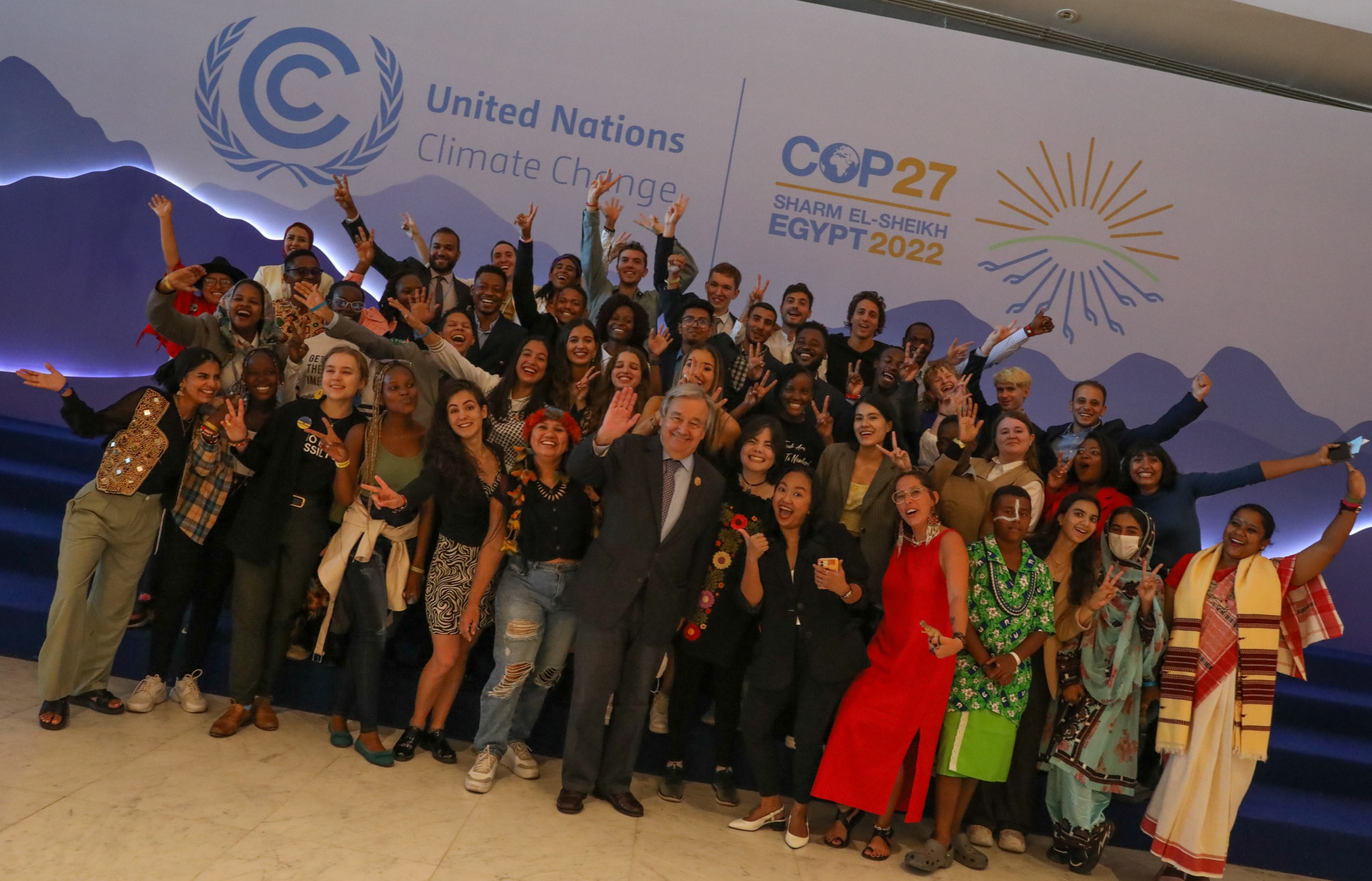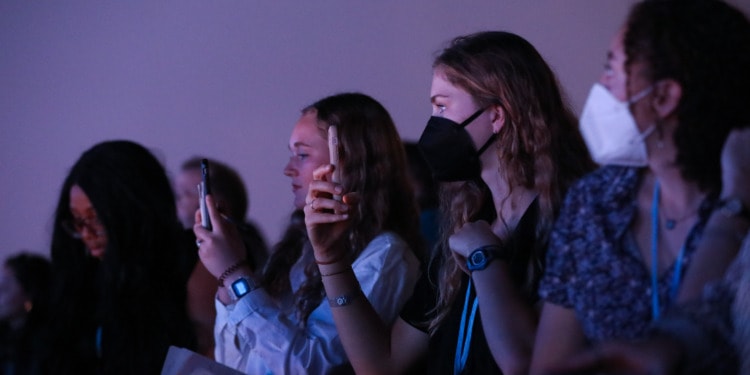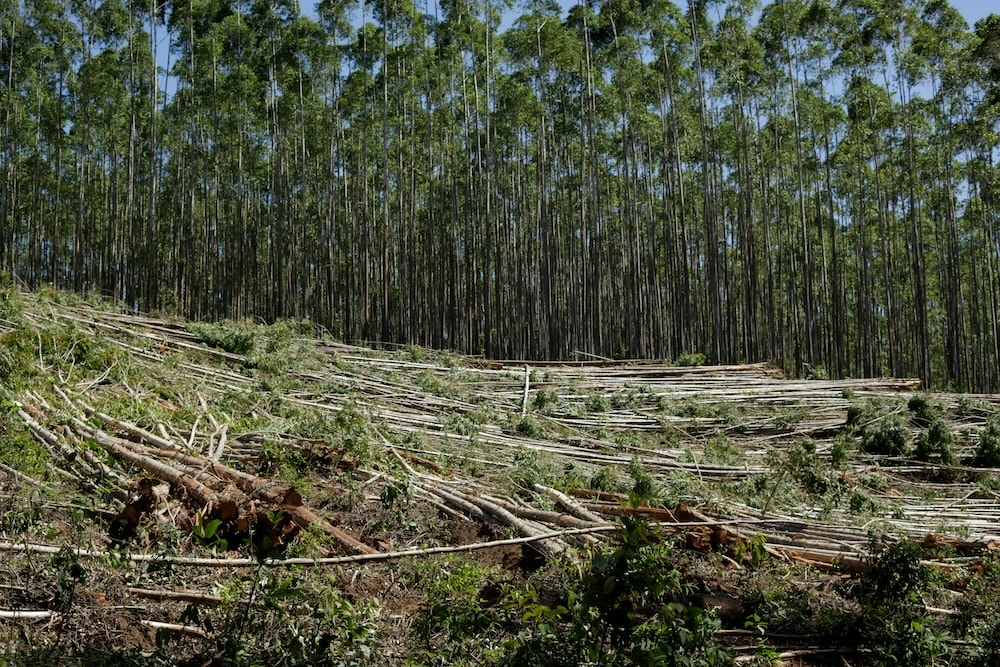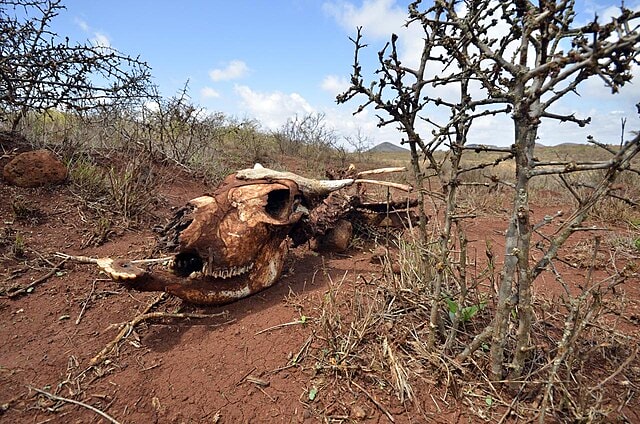Today, facing the global climate emergency which is closely interlinked with the global action crisis, it is clear that accelerating action across the board is the need of the hour. With several ongoing global crises, ICLEI – Local Government for Sustainability (ICLEI) takes action by supporting over 2,500 local and regional governments in 125 countries around the globe to accelerate localizing the Sustainable Development Goals (SDGs) to foster resilient, net-zero, nature-based, circular, equitable and inclusive development.
One thing is for certain — leaving the Earth in a dire state, now or in the future, is not an option. A strong legacy is necessary for today’s children and the future generations to come. At present, more than 1.3 billion young people aged 15 to 24 live on this planet, almost 85% of whom live in the global South.
By 2030, 60% of this urban population will be younger than 18 years of age.
Where are we now?
Our youth, representing the next generation of voters, workers, or leaders, are demonstrating their determination, their anger at lagging leadership, and their potential to engage in climate action. The youth are being heard in the climate debate at all levels, as they mobilize millions of peers, create worldwide movements that claim priority of climate action in political agendas, and demand from governments at all levels to acknowledge and respond to the global climate emergency.
The Youth continue to champion the call to deliver on the objectives of the Paris Agreement of keeping global warming below 2 degrees Celsius (preferably to 1.5 degrees), compared to pre-industrial levels.
A critical first step was recognizing the role of the youth in tackling climate change. In 2008, the UNFCCC Secretariat addressed enhancing the effective participation of youth in climate change policy decision-making processes. From then to now, we have made huge strides in that direction.
One of the most remarkable advancements made at COP26 is the mention of multilevel action in the UNFCCC Framework – Glasgow Climate Pact. The Pact recognizes “the important role of indigenous peoples, local communities and civil society, including youth and children, in addressing and responding to climate change, and highlighting the urgent need for multilevel and cooperative action,” and “urges parties and stakeholders to ensure meaningful youth participation and representation in multilateral, national and local decision-making processes, including under the Convention and the Paris Agreement.”

Further, the Glasgow work programme on Action for Climate Empowerment reaffirms “the critical role of youth as agents of change, calling for further enhancement of youth participation in climate change processes and in unleashing the potential of Action for Climate Empowerment.”
There is a need and an opportunity for frank dialogue between subnational governments and the youth, something that is understood and underway. ICLEI strongly believes in this approach and shares below some examples of how we have been putting this into practice:
- ICLEI has started building a strong relationship with YOUNGO, the Youth Constituency of
the UNFCCC for children and youth, consisting of many youth-led organizations, groups,
delegations, and individuals working in climate change-related fields. This is also linked
to the role ICLEI plays as focal point of the LGMA constituency at the UNFCCC. - By sharing good and best practices and creating spaces for discussion, ICLEI has been
instrumental in inspiring and sparking this essential conversation across cities, towns, and
regions in its network, as well as with institutions and initiatives across the world. This was
demonstrated through:- Creating many opportunities for dialogues, including a firm presence in Daring
Cities 2021. - LGMA constituency’s focal point participation in the ICLEI World Congress 2021-2022
in Malmö and, most recently, in ICLEI’s Daring Cities Global Virtual Forum 2022.
- Creating many opportunities for dialogues, including a firm presence in Daring
- ICLEI is an official partner in the Youth4Climate Initiative, launched by the Italian Ministry
of Ecological Transition (IMET) and UNDP in May 2022. - ICLEI Members have identified and implemented new ways to set ambitious climate and
biodiversity targets, with well-defined strategies to meet these that include the opinion
and support of the local youth. Recife (Brazil), Bonn (Germany), Olympia (U.S.A.), Tirana
(Albania), Lusaka (Zambia), Malmö (Sweden), Envigado (Colombia), Mount Barker
(Australia), Turku (Finland), Bandung (Indonesia), and Udaipur (India) are but a few
celebrated examples of such leadership and engagement.
Yet, we still have a long way to go, and much more needs to be done. A major message shared by 12 University students participating in the ICLEI World Congress 2021 – 2022 in Malmö highlights that the youth is still not meaningfully included in most climate debates.
They are invited (often very late in the process) mainly to play a consultative role, rather than a decision-making role. Further, their calls for raising climate ambitions and faster climate action largely go unheard. The risk that “youthwashing” makes their presence more ceremonial rather than giving them the opportunity to substantially contribute to the content remains high.
Where do we want to go?
Young people have the need, energy, creativity, and motivation to drive change and improve their quality of life in the cities, towns, and communities they live, study and work in. It should not be forgotten that they are agents of change, researchers, entrepreneurs, innovators and residents.
The Malmö Commitment highlights the importance of a just transition to a sustainable local economy, emphasizing the need to create decent employment for youth and women:
“These jobs should support new local economies that are productive and not extractive, that contribute to restoring and enhancing the environment, that manage climate risk, or are otherwise supportive of safe, healthy, sustainable communities and lifestyles.”
Related Articles: Youth Has a Key Role in Peace Processes | Involving the Youth in Decision-Making Processes | Engaging the Arab Youth in Climate Action
ICLEI envisions embedding the voice of youth in its own activities across all five ICLEI pathways, mindful of local specificities, while supporting the next generation’s role in the co-design of local implementation projects.
Young people should have a say on crucial strategies such as the local climate action plans, through appropriate governance structures and processes. Formal youth processes that feed into decision-making at the local level (City Councils), including through research, need to be put in place.
ICLEI intends to upscale support for local and regional governments to unlock and embrace the constructive, creative potential of the youth, by meaningfully including their representatives as active participants in local climate action. One way to achieve this goal is for ICLEI to create a toolkit for youth on how to reach out to local government officials and for local governments on how to best engage and involve the youth.
How do we get there?
ICLEI recognizes the valuable and creative contribution youth can make to climate action and their potential to push for more ambitious climate commitments at the local level. ICLEI aims to enhance the participation of youth through their proactive involvement in the activities of local governments through three pillars:
- (i) Advocacy
- (ii) Knowledge Sharing and Capacity Development
- (iii) Governance
Advocacy
Advocacy is an instrument to call and push for more ambitious climate commitments, regulation, policy and accelerated joint action. In accordance with our mission to foster multilevel governance, ICLEI will continue collaborating with youth representative organizations, such as YOUNGO, Youth7 (the official G7 youth engagement group), as well as with other regional youth organizations and networks in important international arenas like the COPs to affirm and acknowledge each other’s importance in steering the path toward a sustainable future.
- ICLEI has taken significant steps in advocating for more collaboration with the youth. Building on the Bonn Climate Change Conference outcomes (SB56), ICLEI intends to actively engage the youngest in the Stocktake4ClimateEmergency through collaboration with the Local Conference of Youth (L-COY).
Knowledge Sharing and Capacity Development
This pillar focuses on activities relating to exchanging knowledge between formal and informal educational stakeholders, including youth groups, schools, and universities. ICLEI will strengthen its partnerships with relevant actors to contribute as well as amplify learning opportunities for young people.
- ICLEI deems it significantly important to encourage the creation of new jobs and training opportunities for young people, especially in the local government offices and bodies. This will allow the youngest to not only learn from experienced local staff but also to actively contribute with new creative ideas and out-of-the-box perspectives in designing innovative solutions.
Governance
This pillar emphasizes empowering the youth in decision-making processes through youth councils that support policymakers in developing and implementing local climate action plans and ensuring the representation of different youth groups, such as the vulnerable and marginalized ones.
- ICLEI aims to support practitioners and decision-makers in the integration of next generations into the design and implementation of local sustainability, resilience, and climate policies. We urgently need to move on implementing concrete actions — and the youth should be actively engaged in that process.
Finally, aligned with ICLEI’s five pathways of driving change, we acknowledge the need for a coordinated collaboration of youth engagement in areas related to sustainable development addressing all environmental, social, and cultural crises. This includes (but is not limited to) biodiversity and nature conservation, water management, circular economy, social innovation, and food production systems.
Editor’s Note: The opinions expressed here by Impakter.com columnists are their own, not those of Impakter.com — In the Featured Photo: Youth at COP27. Photo Credit: UN Climate Change.














